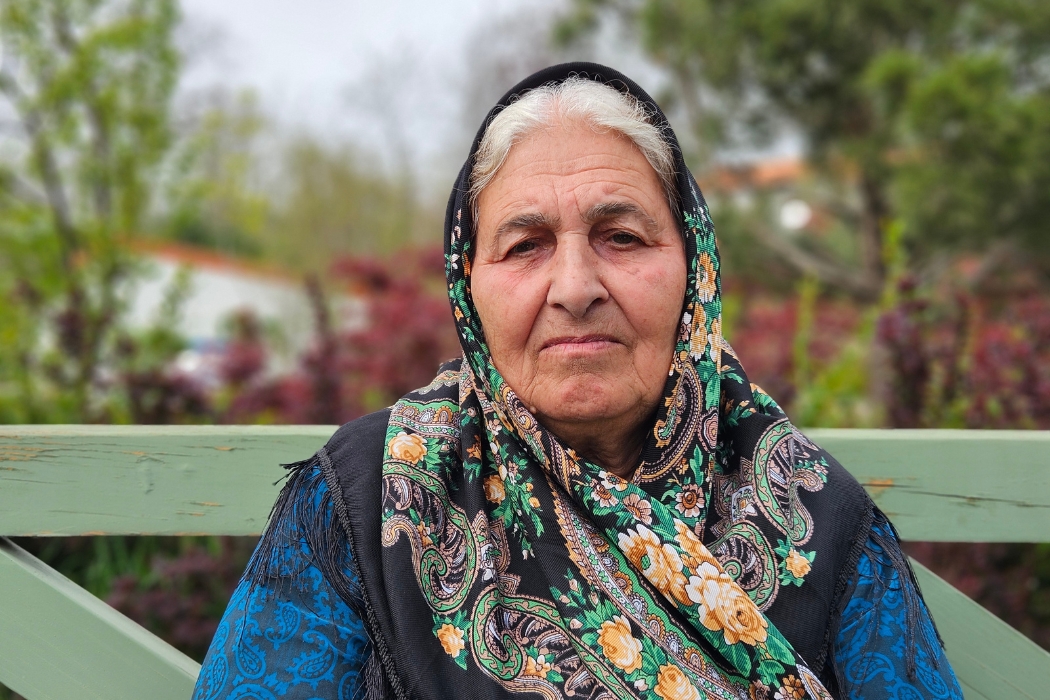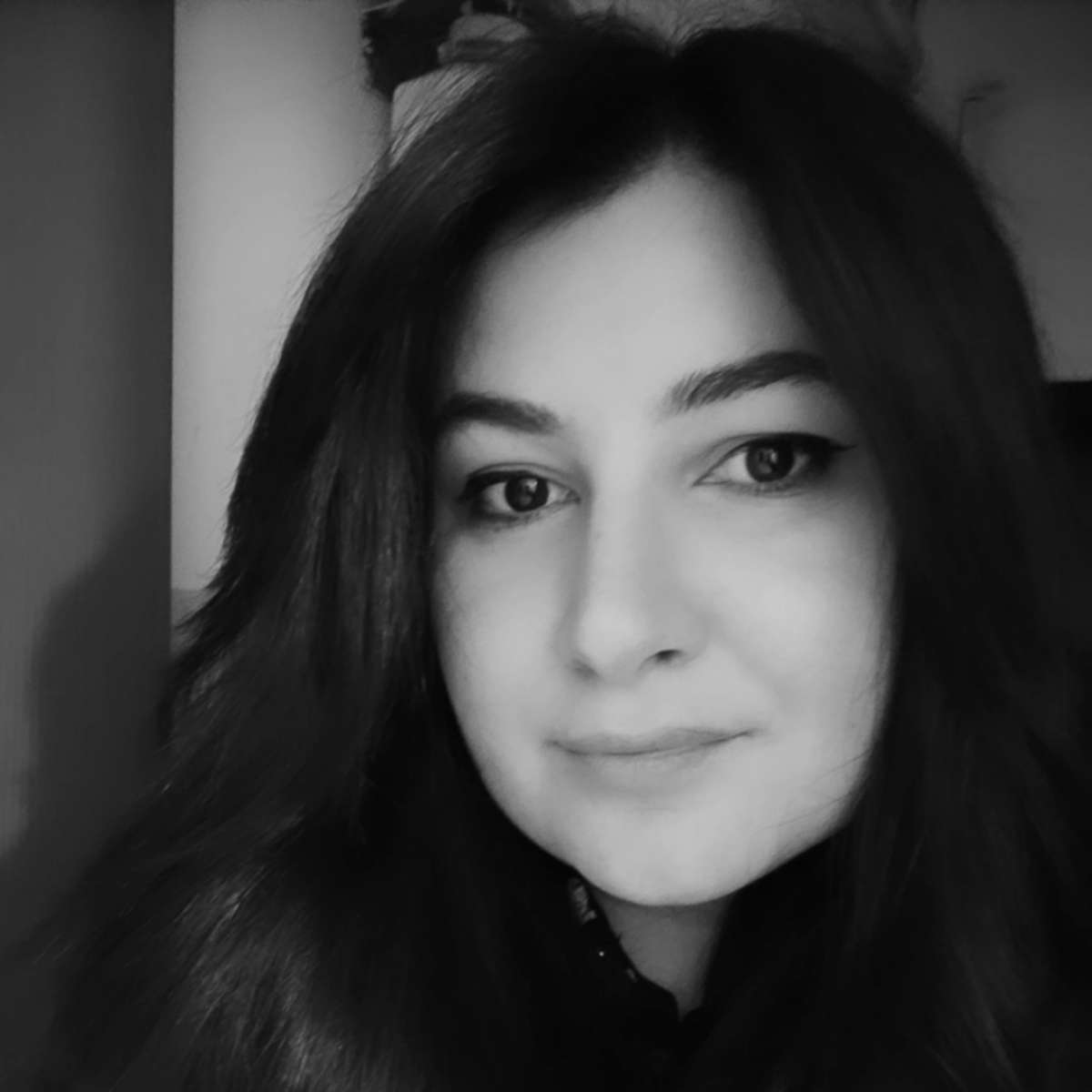- Home
- The Revival of Lachin City—The Joy of Returning Home
The Revival of Lachin City—The Joy of Returning Home
Lachin, which was occupied by Armenian Armed Forces in 1992, was returned to Azerbaijan in August 2022. Now, rebuilding work continues in the city. Lachin residents, who were forced to leave their hometown 30 years ago, are returning home.

Lachin resident Ipek Tahmazova. Photos and text by Konul Shahin
Visiting the Azerbaijani territories, which have been under Armenia’s occupation for more than 28 years, evokes a blend of emotions: the sadness of the destruction and the joy of seeing these lands again.
Such were the feelings that enveloped me upon touchdown at Zangilan airport. It felt as though spring itself was exerting extra effort to heal the scars left by Zangilan's destruction. Nature has rewarded this wounded land with all its colours and every corner is adorned with lush greenery and blossoms.
The true scale of destruction becomes unmistakably clear during the journey from Zengilan to Lachin. Despite this, rapid reconstruction work continues in the city. The best example is the village of Aghalı, which was rebuilt and opened to settlement.
The road that leads to the city of Lachin is very close to the Armenian border, and as the bus nears the Hakari bridge, Armenian posts and flags come into view on the opposite side of the river. Azerbaijan established a border crossing point here last year and took the control of the former Lachin corridor.
A view of Lachin
Newly built homes in Lachin
As soon as you enter Lachin, you feel fascinated by its beauty. This lush green city reminds us of an open-air museum with its reconstructed roads, repaired houses, and enchanting gardens. Yet, the true treasure of this city is the friendly and hospitable Lachin people who returned to their homes after 31 years.
Photo of a Lachin resident playing outside with her friends.
Photo of a Lachin resident playing outside with her friends.
Children are playing cheerfully in one of the gardens, while just next door, 76-year-old Ipek Tahmazova warmly observes the arrival of guests into the city. When she sees me, she invites me to her home, and our conversation starts over a cup of black tea and thyme.
Ipek Tahmazova, Yegana Alakbarova, and Arifa Allahverdiyeva
"Our garden, our house were my dreams every night. Yet, I had lost all hope of ever returning to Lachin," her voice trembles with emotion as she begins to speak.
She was one of more than 70 thousand residents of Lachin who was forced to leave when Armenian Armed Forces occupied Lachin on 18 May 1992. When Lachin was occupied, houses were looted, and most of them were burned. During the occupation years, Armenians from Armenia and the Middle East were settled in this city, which was strategically important for the separatist regime of Karabakh and Republic of Armenia.
Ipek Tahmazova reveals that her house was not demolished because it was located along the road and in an important part of the city, but it was not livable before its recent repair. She returned to Lachin with her son, daughter-in-law, and two grandchildren in May of last year. Now, her favourite pastime is sitting on the balcony of her house, gazing out at the panoramic view of Lachin and tending to the herbs and vegetables she has planted in her garden.
However, the memories of leaving her home during Lachin’s occupation remain a deep trauma for her, and she prefers not to speak about it.
Gunduz Tahmazov and Hasan
Ipek’s son Gunduz Tahmazov was 22 when he left Lachin with his family. Initially settling in Sumgayit, they later relocated to a government-provided accommodation for IDPs in Baku.
Gunduz's wife, Arifa Allahverdiyeva, now works as a teacher in Lachin, a city she left behind at 15. The trauma she experienced as a result of the occupation still affects Arifa. She says she sometimes worries because they live so close to the Armenian border. “There are still concerns about living close to the Armenian border. But those concerns are gradually dissipating now. We know that our army stands guard to protect us. After moving here, we got used to Lachin so quickly that it was as if we had never left our city,” she says.
Hasan Tahmazov
Fifteen-year-old Hasan, the son of Gunduz and Arifa, loves to spend time with his school friends, and his favourite activity is playing football on the newly built football field. “Although the kids were born in Baku, they don’t miss that place at all. This is very interesting. We often shared our stories with them of our childhood in Lachin. Maybe that's why it was easy for them to adapt here,” Arifa adds.
Yegana Alakbarova, who works as an English teacher at a school in Lachin, moved here with her son, who has recently graduated from university. Her husband works in Baku, which causes Yegana to travel to Baku frequently. She is also trying to complete the furnishings of her newly renovated house. “It is a re-established city; of course, it will have temporary problems. But it is beautiful here. I wish you'd come here in winter; it was magical,” she says. Yegana then showed me the jasmine and narcissus flowers on the table that her students gave her as gifts, stating, “This is my love for Lachin—even when the flowers fade, I can't bear to throw them away.”
Speaking at a forum held in Lachin, organized jointly by ADA University and the Baku based AIR-Center, and attended by more than 60 foreign experts from 30 countries, the Lachin representative of the President of Azerbaijan, Masim Mammadov, announced that 59 families will soon return to the Sus village of Lachin. Until now, 493 families (1838 people) have returned to Lachin, and 217 families (823 people) have returned to Zabukh village.
Reconstruction works are continuing in Lachin, and undoubtedly, this beautiful city will soon be turned into one of the most touristic places in Azerbaijan. However, the people who returned to Lachin have only one wish: no more war.
“At nightfall, we see the lights of the houses on the opposite side of the border. That's how close we are. May everything be fine and we live in peace in our homes,’’ says 76-year-old İpek Tahmazova.
Read this next






